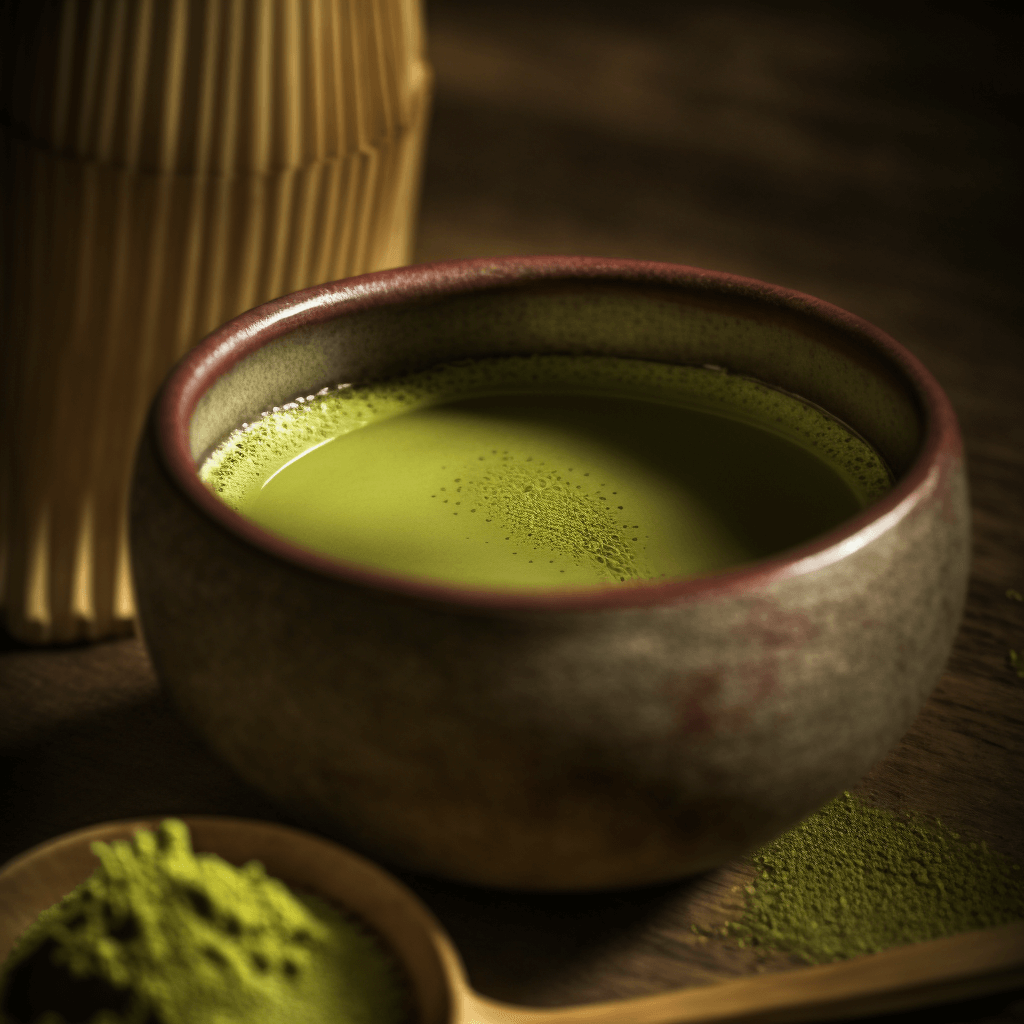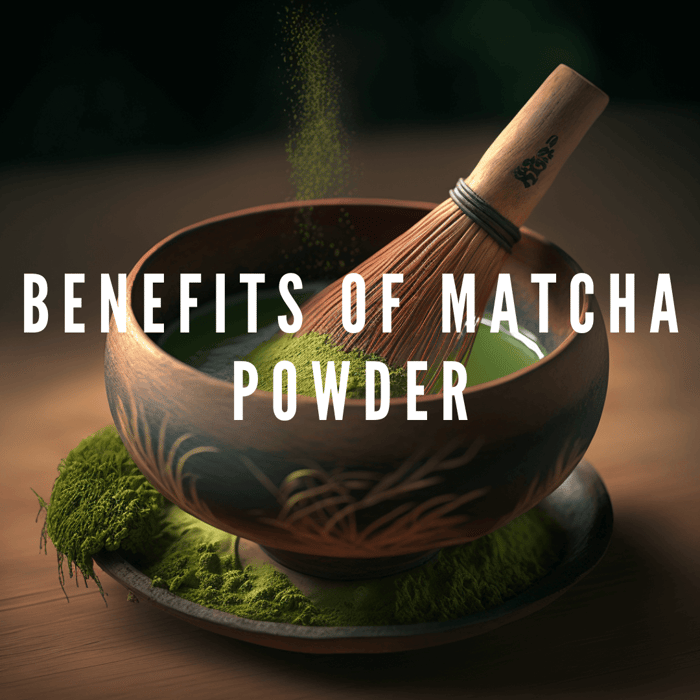Table of Contents
- Introduction
- A Brief History of Matcha
- Matcha Production and Quality
- Rich in Antioxidants
- Boosts Metabolism and Burns Calories
- Provides Calm Energy and Enhances Focus
- Supports Detoxification
- Strengthens the Immune System
- Promotes Heart Health
- Improves Oral Health
- Matcha for Skincare
- Culinary Uses of Matcha
- How to Prepare Matcha Tea
- Precautions and Side Effects
- Conclusion
Introduction
Matcha is a high-quality green tea powder made from the leaves of the Camellia sinensis plant. This finely ground powder has gained popularity due to its numerous health benefits and its unique, vibrant green color. In this article, we will explore the various matcha benefits and how you can incorporate this green tea superfood into your daily routine.
A Brief History of Matcha
Matcha has a long history that can be traced back to China during the Tang Dynasty (618-907 AD). However, it was in Japan that matcha became an integral part of the culture, particularly within the framework of the traditional Japanese tea ceremony. Over time, matcha's popularity grew, and today it is enjoyed worldwide for its health benefits and unique flavor.
Matcha Production and Quality
Matcha is produced through a meticulous process that involves shading the tea plants to increase their chlorophyll content, hand-picking the leaves, and then grinding them into a fine powder. The quality of matcha can vary significantly, with ceremonial-grade matcha being the highest quality, followed by premium-grade and culinary-grade matcha.
Rich in Antioxidants
One of the most notable matcha benefits is its high antioxidant content. Antioxidants help protect our bodies from free radicals, which can cause damage to our cells and contribute to aging and various diseases. Matcha is particularly rich in a type of antioxidant called catechins, specifically EGCG (epigallocatechin gallate). EGCG has been shown to have anti-inflammatory and anti-cancer properties, making matcha a powerful addition to your diet.
Boosts Metabolism and Burns Calories
Matcha can help boost your metabolism and increase the rate at which your body burns calories. This is due to the combination of caffeine and catechins found in matcha, which have been shown to improve thermogenesis (the body's rate of burning calories) and fat oxidation. Including matcha in your daily routine may support your weight loss goals and help maintain a healthy weight.
Provides Calm Energy and Enhances Focus
Matcha contains a unique combination of caffeine and an amino acid called L-theanine, which together provide a calm, focused energy without the jitters or crashes associated with other sources of caffeine. L-theanine promotes relaxation and reduces stress, making matcha an excellent choice for those looking for a natural way to improve their mental clarity and focus.
Supports Detoxification
The high levels of chlorophyll found in matcha make it a powerful natural detoxifier. Chlorophyll helps cleanse the body of toxins, heavy metals, and chemicals, supporting liver function and overall health. Incorporating matcha into your diet can help support your body's natural detoxification processes.
Strengthens the Immune System
Matcha benefits also extend to the immune system. The antioxidants, particularly EGCG, found in matcha have been shown to support the immune system by fighting against harmful bacteria and viruses. Additionally, matcha contains various vitamins and minerals, such as vitamin C, that contribute to a strong and healthy immune system.
Promotes Heart Health
Regular consumption of matcha has been linked to improved heart health. The catechins in matcha, including EGCG, can help reduce inflammation, lower bad cholesterol (LDL), and prevent the oxidation of LDL cholesterol, which is a contributing factor to heart disease. By including matcha in your diet, you may be able to support better cardiovascular health.
Improves Oral Health
Matcha can also benefit your oral health by inhibiting the growth of harmful bacteria in the mouth, reducing plaque formation, and preventing bad breath. The catechins in matcha have antimicrobial properties that help maintain a healthy balance of bacteria in the mouth, contributing to better overall oral hygiene.
Matcha for Skincare
Thanks to its high antioxidant content, matcha benefits extend to skincare as well. Using matcha topically or consuming it as part of your diet can help reduce inflammation, fight free radicals, and promote skin elasticity. Matcha's anti-inflammatory and antimicrobial properties may also help soothe and treat acne-prone skin.
Culinary Uses of Matcha
Beyond its health benefits, matcha is also a versatile ingredient in the kitchen. It can be used in various recipes, including smoothies, lattes, baked goods, and even ice creams. Its distinct, slightly sweet, and earthy flavor adds a unique twist to both sweet and savory dishes. The vibrant green color of matcha also makes it an eye-catching addition to your culinary creations.

How to Prepare Matcha Tea
Preparing matcha tea is a simple process that allows you to enjoy its numerous health benefits. To prepare a cup of matcha tea, follow these steps:
- Sift 1-2 teaspoons of matcha powder into a bowl to remove any clumps.
- Add 2-4 ounces of hot water (around 175°F, not boiling).
- Whisk the matcha and water together using a bamboo whisk or an electric frother until frothy and well combined.
- Pour the prepared matcha into a cup and enjoy!
For added flavor, you can also prepare matcha lattes by adding your choice of milk and sweetener to the prepared matcha tea.
Precautions and Side Effects
While matcha offers numerous health benefits, it's essential to consume it in moderation. Matcha contains caffeine, and excessive consumption may lead to side effects such as insomnia, irritability, and rapid heartbeat. If you are sensitive to caffeine or have a pre-existing medical condition, consult your healthcare professional before incorporating matcha into your diet. Pregnant and breastfeeding women should also be cautious with matcha consumption due to its caffeine content.
Conclusion
Matcha is a powerful superfood with a wide range of health benefits, from boosting metabolism to supporting heart health. By incorporating matcha into your diet, you can enjoy its unique flavor and numerous health advantages. Be sure to check out organic sea moss with matcha as an easy and convenient way to include matcha in your daily routine.
FAQs
- What is the difference between matcha and regular green tea?
Matcha is a powdered green tea made from finely ground whole tea leaves, whereas regular green tea is made by steeping tea leaves in hot water. Matcha contains a higher concentration of antioxidants, vitamins, and minerals compared to regular green tea. - How much matcha should I consume daily?
For most people, 1-2 cups of matcha tea per day is a safe and beneficial amount. However, it's essential to listen to your body and adjust your consumption accordingly, especially if you are sensitive to caffeine. - Can I use matcha in recipes other than tea?
Yes, matcha is a versatile ingredient that can be used in various recipes, such as smoothies, lattes, baked goods, and ice creams. - Does matcha contain caffeine?
Yes, matcha contains caffeine. However, it also contains L-theanine, an amino acid that promotes relaxation and counteracts the jittery effects of caffeine. - Is matcha safe for everyone?
While matcha is generally safe for most people, it's essential to consume it in moderation due to its caffeine content. Pregnant and breastfeeding women, individuals sensitive to caffeine, and those with pre-existing medical conditions should consult their healthcare professional before incorporating matcha into their diet.
Sea Moss Gel Infused With Japanese Matcha

€18,95
Elevate your sea moss routine with a vibrant twist. This gel combines Caribbean sea moss with high-quality Japanese matcha, creating a smooth, naturally green blend with a mild, earthy flavour and a hint of citrus from fresh lime. Japanese matcha… read more
 is here! Shop now, pay later in 4 easy installments
is here! Shop now, pay later in 4 easy installments



